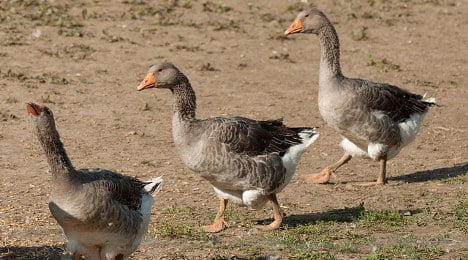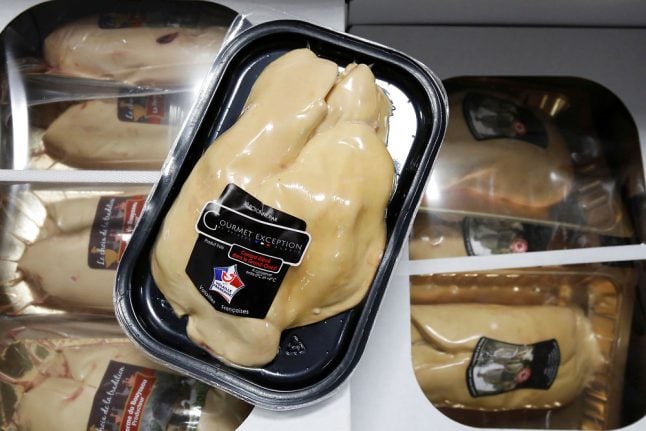FOIE GRAS
Force-feeding for foie gras on trial in France
A company producing the controversial delicacy foie gras will appear in court on Thursday after a hidden video revealed what animal activists called a mistreatment of the geese. The company claims the video is a fake.
Published: 22 January 2015 10:08 CET

The geese in this picture are not the geese from the story. Photo: Pascale/Flickr
The video was uploaded to YouTube in November 2013 and shows often discomforting scenes from inside several factories where the ducks and geese are force fed. Geese are seen being stored in small cages, vomiting, and suffering from what appear to be infections.
See the five-minute video here. Viewer discretion is advised.
The video was recorded anonymously by a worker at the factory and then sent to animal activist group L214, where lobbyists conferred with veterinarians and deemed the acts as "animal cruelty".
The company, Ernest Soulard, will now appear in a French court to face charges of "aggravated abuse" and "acts of cruelty and mistreatment of animals". If convicted, company heads could face fines of up to €30,000 or two years in prison.
Roland Tonarelli, the head of the foie gras company, said that the video was both fake and misleading.
"We're not barbarians," he told Europe 1, adding that the birds with infections "had conjunctivitis, which can happen".
"These images aren't from our factories," he continued. "Like the scene where you can see a goose with a broken wing – you'd never find something like that in one of our buildings. These images have been falsified."
The process of "gavage", where farmers stick tubes into the birds' throats and pump corn into their stomachs, is falling out of favour among the French. A poll last month showed that almost fifty percent of the French support a force-feeding ban.
Meanwhile 29 percent of the 1,032 people polled said they would refuse to buy foie gras in protest against the ill-treatment of animals, ten points higher than a poll in 2009.
Url copied to clipboard!


 Please whitelist us to continue reading.
Please whitelist us to continue reading.
Member comments